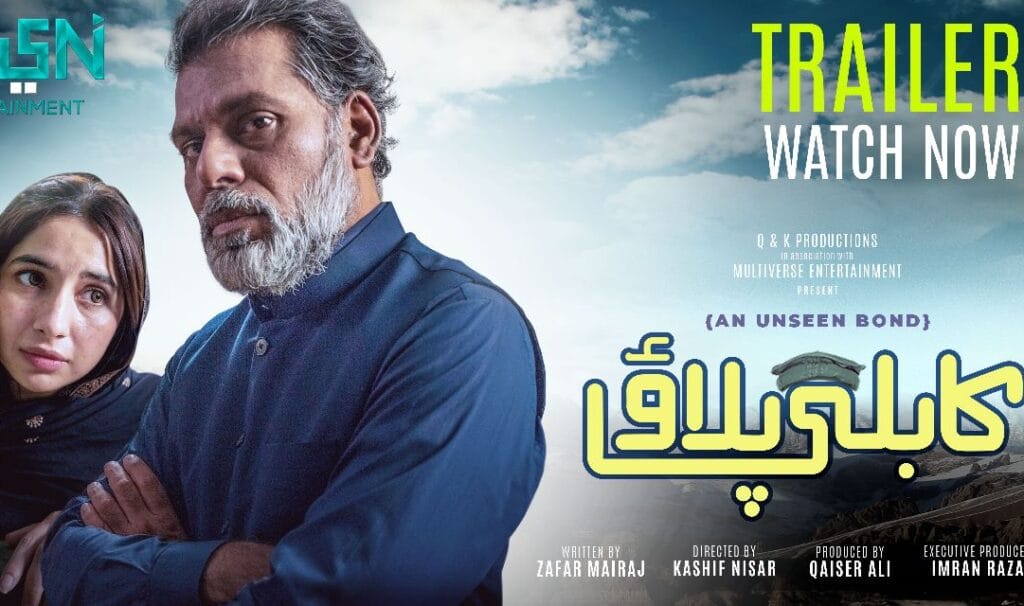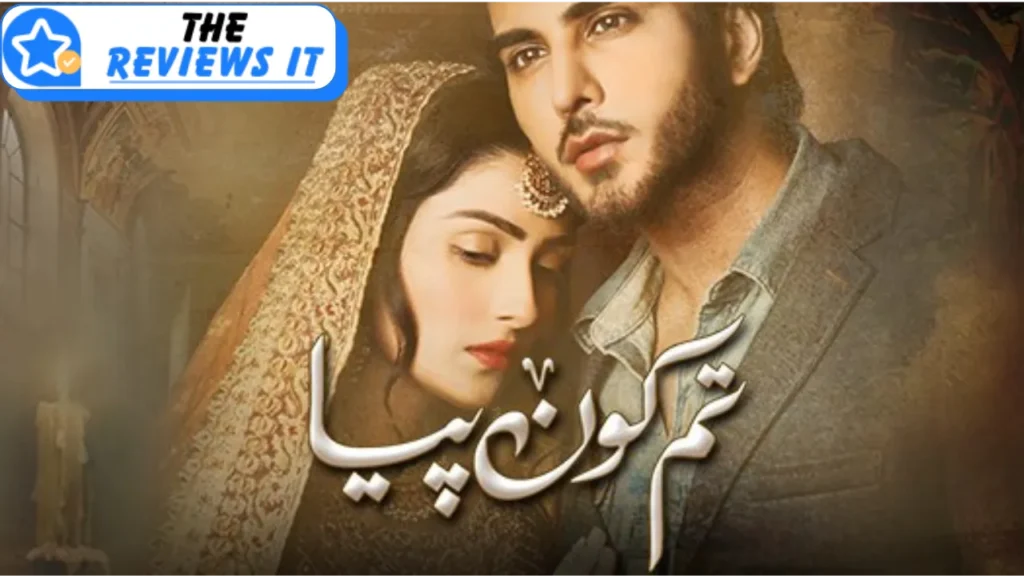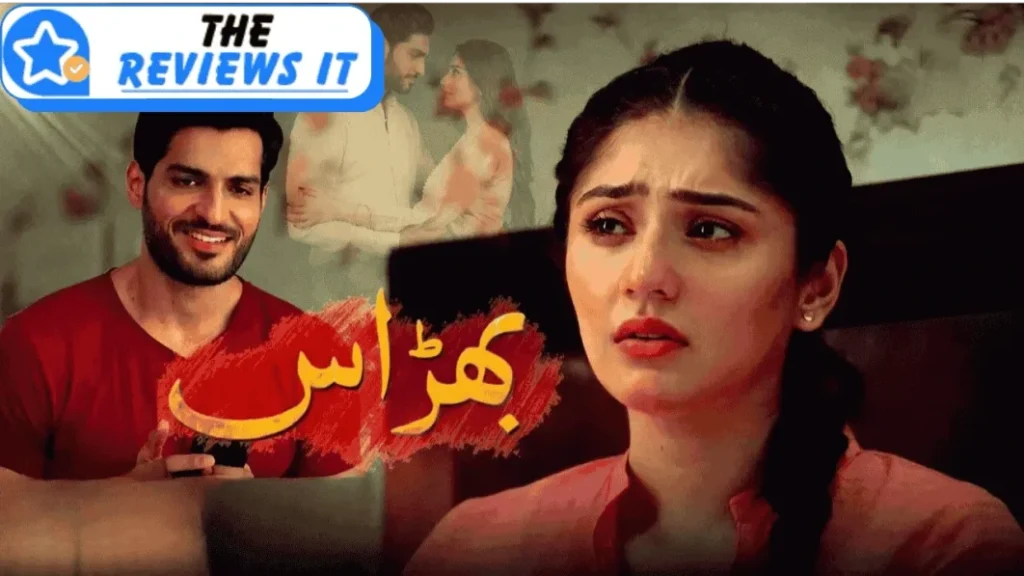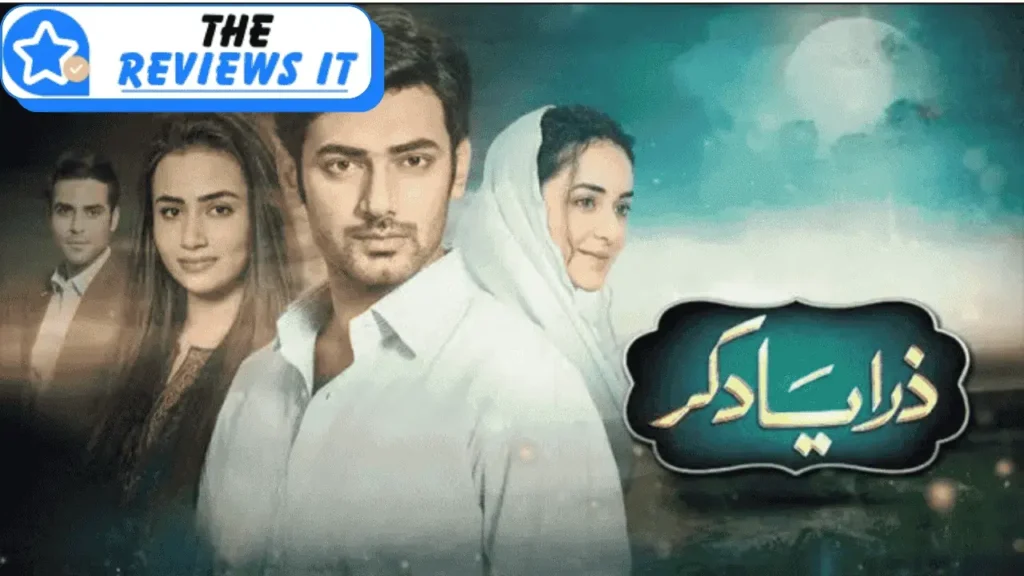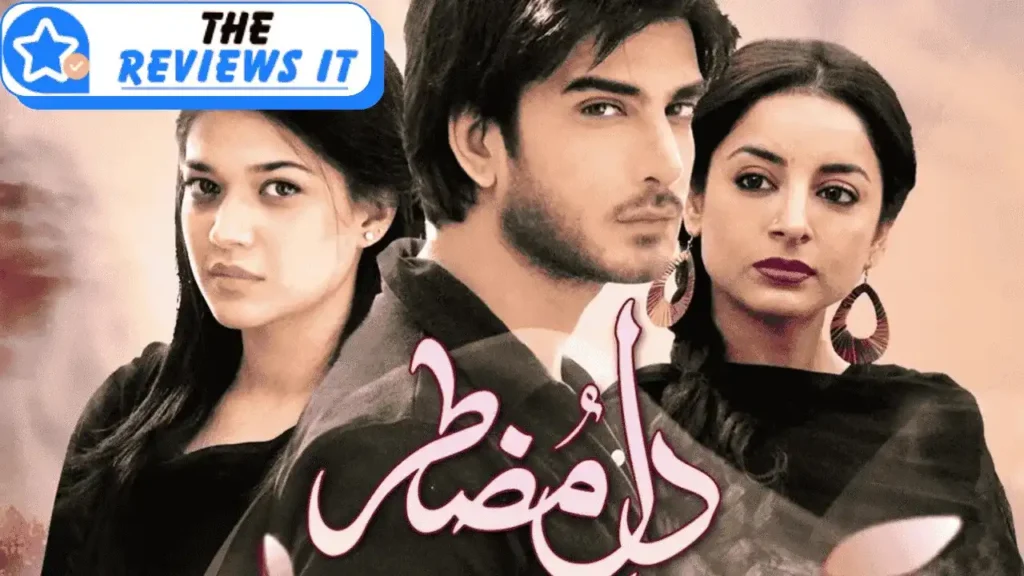Brief Overview of “Kabli Pulao”
Kabli Pulao Drama Review: “Kabli Pulao,” a 2023 Pakistani drama, serves up a tale rich with unconventional love and cultural exploration. The story revolves around Haji Mushtaq, a conservative Lahori man, and Barbeena, a resilient Afghan refugee. Their unexpected bond begins when Haji Mushtaq encounters Barbeena’s family during a religious pilgrimage to Mardan. What follows is a captivating narrative of clandestine marriage, cultural clashes, societal pressures, and a love story that defies all odds.
What Sets It Apart in Pakistani Dramas
Unique Cultural Fusion: Breaking away from conventional themes, “Kabli Pulao” explores the complexities of love transcending cultural boundaries and bridging generational gaps. It offers insight into the Afghan refugee experience in Pakistan, presenting a poignant social commentary.
Empowered Female Protagonist: Barbeena emerges as a compelling portrayal of strength and independence. She challenges societal norms and traditional gender roles, asserting her identity amidst cultural tensions.
Emotional Depth: “Kabli Pulao” delves into the intricate emotional landscapes of love and understanding. It goes beyond superficial portrayals, portraying the profound impact of human connections in overcoming cultural divides.
Blend of Humor and Heart: Amidst its exploration of serious themes, “Kabli Pulao” balances the narrative with moments of humor and heartwarming interactions. These elements enrich the storyline, offering viewers a nuanced and engaging viewing experience.
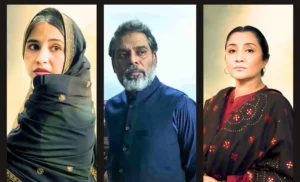
Plot Summary
1. The Heart of “Kabli Pulao”
“Kabli Pulao” centers around the unconventional romance blossoming between Haji Mushtaq and Barbeena. Haji Mushtaq, a compassionate yet conservative man, crosses paths with Barbeena, an Afghan refugee striving to support her family, during a religious pilgrimage. Despite their differing backgrounds and significant age gap, a profound connection sparks between them. This sparks a series of events leading to a secretive union.
2. Key Elements of the Plot
A Serendipitous Meeting: Haji Mushtaq encounters Barbeena’s brother during a crucial moment of need, where a proposal for financial aid in exchange for marriage is made. Disapproving of this transactional approach, Haji Mushtaq steps in, offering to marry Barbeena himself. Thus begins their unexpected bond.
A Covert Marriage: To shield Barbeena’s reputation and navigate societal expectations, Haji Mushtaq brings her into his home under the guise of a househelp, keeping their marriage hidden from his family. This arrangement sets the stage for intricate dynamics and internal conflicts.
Navigating Cultural Boundaries: Barbeena grapples with assimilating into Pakistani customs and norms, facing challenges and misunderstandings along the way. As they spend more time together, Haji Mushtaq and Barbeena forge a deepening connection founded on mutual respect and understanding.
Revelations and Repercussions: The revelation of Haji Mushtaq and Barbeena’s secret marriage sends shockwaves through their families, unraveling hidden prejudices and cultural biases. Barbeena finds herself scrutinized and judged, testing their fledgling relationship against external pressures.
Challenges to Overcome: As they confront societal expectations and familial objections, Haji Mushtaq and Barbeena must navigate a tumultuous journey to defend their love. Their commitment is tested as they confront their own beliefs and societal constraints.
Unforeseen Twists: Alongside their personal struggles, “Kabli Pulao” may unveil unexpected turns, such as underlying motives behind Barbeena’s brother’s actions or external forces threatening their bond, adding layers of intrigue to their narrative.
Character Analysis
“Kabli Pulao” captivates not only through its unique storyline but also through its vividly portrayed characters. Let’s explore the key personalities who enrich the narrative:
1. Haji Mushtaq (Played by Ehteshamuddin):
A Man of Tradition: Haji Mushtaq embodies kindness and deep religious faith, anchored in his cultural heritage. Initially conflicted by societal norms, he ultimately follows his heart’s calling.
Personal Evolution: Through his relationship with Barbeena, Haji Mushtaq undergoes profound growth, confronting his own biases and embracing diversity. His journey portrays the complexities of masculine vulnerability and growth.
2. Barbeena (Played by Nadia Afghan):
Resilient and Self-Sufficient: Barbeena emerges as a resilient figure, shaped by her experiences as an Afghan refugee. Determined to support her family, she defies traditional roles and stereotypes.
Navigating Cultural Rifts: Barbeena grapples with assimilating into Pakistani society within Haji Mushtaq’s household, shedding light on the challenges faced by refugees amidst cultural differences.
3. Ayesha (Played by Fajar Khan):
Haji Mushtaq’s Niece: Ayesha serves as a supportive confidante to both Haji Mushtaq and Barbeena. Initially grappling with acceptance, her character evolves to become a pillar of support amid familial tensions.
4. Haji Mushtaq’s Family:
Conflict and Complexity: Haji Mushtaq’s family embodies societal pressures and disapproval, presenting formidable obstacles to the couple’s relationship. Their reactions add layers of depth and conflict to the storyline.
5. Barbeena’s Brother (Played by Abdullah Farhat):
Plot Catalyst: Barbeena’s brother initiates the narrative by proposing the marriage arrangement, sparking the drama’s trajectory. His motivations and potential hidden agendas introduce intrigue and complexity.
These characters collectively breathe life into “Kabli Pulao,” weaving a tapestry of love, cultural exploration, and the quest for acceptance. Their interactions and transformations enrich the drama’s narrative, inviting viewers into a world where personal convictions clash with societal expectations.
Memorable Scenes and Dialogues
“Kabli Pulao” captivates not only through its storyline but also through poignant moments that linger with viewers long after the credits roll. Here are some impactful scenes and dialogues that define the drama:
1. Key Moments That Leave an Impression:
The Encounter in Mardan: The initial meeting between Haji Mushtaq and Barbeena sets the stage for their unconventional bond. It portrays their cultural differences while hinting at a shared understanding that transcends backgrounds.
The Silent Vows: The scene depicting their clandestine marriage ceremony carries significant emotional weight. Despite its simplicity, it symbolizes their deep commitment and the unconventional nature of their union.
Barbeena’s Cultural Clash: A poignant scene unfolds as Barbeena navigates the complexities of adapting to Haji Mushtaq’s household and Pakistani societal expectations, highlighting her struggles and resilience.
Revelation of Secrets: The dramatic moment when Haji Mushtaq’s hidden marriage is uncovered brings tension and vulnerability to the forefront. The family’s reactions and Barbeena’s emotional turmoil add depth to the unfolding narrative.
Declaration of Love: Amid societal pressures, a pivotal scene sees Haji Mushtaq and Barbeena openly professing their love for each other. This moment marks a powerful turning point in their journey, defying societal norms.
2. Impactful Dialogues and Their Meaning:
“Love Knows No Boundaries”: Echoed by either Haji Mushtaq or Barbeena, this dialogue underscores the universal nature of love that transcends cultural divides and societal expectations.
“Relationships Are Built on Hearts, Not Blood”: Spoken by Ayesha, this line challenges the traditional emphasis on familial ties, emphasizing the importance of genuine emotional connections over societal norms.
“If I Can’t Be a Guest in Your Home, Let Me Be a Guest in Your Heart”: Barbeena’s heartfelt plea for acceptance encapsulates her longing for belonging and willingness to forge a place in Haji Mushtaq’s life despite external limitations.
“Tradition Is Important, But Love Is Equally Essential”: This poignant statement, possibly voiced by Haji Mushtaq, highlights the ongoing struggle between upholding cultural traditions and pursuing personal happiness.
Comparison with Other Dramas
“Kabli Pulao” distinguishes itself in the realm of Pakistani dramas through its innovative approach to storytelling:
Exploration of Cross-Cultural Romance: In contrast to dramas centered on intra-Pakistani social divides, “Kabli Pulao” ventures into the intricacies of love between different cultures and ethnic backgrounds. It sheds light on the Afghan refugee experience in Pakistan, prompting viewers to reflect on issues of identity and acceptance.
Challenging Societal Norms: The drama bravely confronts the stigma surrounding relationships with significant age gaps. This narrative choice adds layers of complexity and societal disapproval to the central conflict, compelling viewers to reconsider conventional perspectives on love and relationships.
Empowering Female Protagonist: Barbeena emerges as a strong, self-reliant woman who defies traditional gender roles. She isn’t portrayed as a passive character awaiting rescue but actively shapes her own destiny amidst cultural challenges, offering a refreshing portrayal of female agency in Pakistani television.
Focus on Emotional Depth: “Kabli Pulao” prioritizes the emotional journey of its characters, emphasizing the profound love that blossoms between Haji Mushtaq and Barbeena. This focus underscores the drama’s message about the transformative power of genuine human connection, transcending cultural barriers.
Comparative Insights:
Contrasting Social Issues: While “Daam” addresses the taboo topic of acid violence, “Kabli Pulao” focuses on the broader theme of cultural acceptance and integration of refugees. Each drama tackles societal issues but through distinct lenses, highlighting different facets of Pakistan’s social fabric.
Exploring Unconventional Love: Similar to “Humsafar” and “Sadqay Tumhare,” “Kabli Pulao” presents a love story that challenges societal norms. However, it uniquely navigates the complexities of cross-cultural romance and age disparity, offering a nuanced exploration of love against the backdrop of societal expectations.

